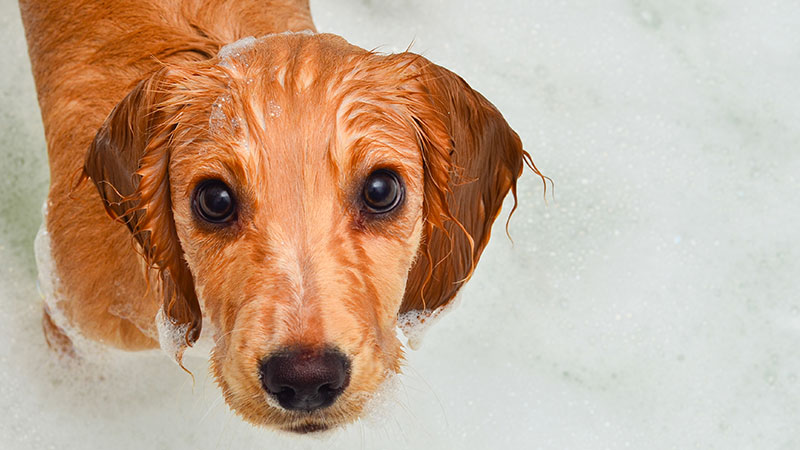My children consider our dog their sister. She plays games in the yard, cuddles with them on the couch, and sleeps with them in their beds. So, the moment they shy away when she gets close, I know she’s either rolled in something gross, or it is high time for me to check her ears. She’s stinky and we need to do something about it.
Over the years, we’ve taken a more holistic approach when it comes to caring for our children, both human and fur covered. We have also tried to implement some preventative routines to avoid illness and injury. We have learned that some household remedies can do the trick every bit as well, if not better, than medications that may have potential side effects. Of course, there is always a time and a place for the doctor or the veterinarian and before using any household remedies you should consult with your vet.
Why does my dog stink?
Bad breath in dogs
When your dog leans in for a kiss...er lick and you have to turn away due to the stench, dental disease may be the culprit. Or it could be worse--tooth decay. Dental disease and decay can be prevented through regular brushing and professional teeth cleanings. See our post, National Pet Dental Month for a list of reasons why it is important to stay on top of dental cleanings. The most important reason is your dog’s quality of life! A dog with loose teeth, painful gums, and/or periodontal disease cannot eat or play without significant discomfort. Our blog also gives tips on keeping your dog’s teeth clean.
You should aim for preventative dental procedures for your pets every six months. PetPartners' Wellness Plan can help you stay on top of your pet’s dental health. Check out the Wellness Care coverage to learn more.
Chronic gas
Gut health has become a hot topic in today’s health world, and for good reason. If your dog’s gut bacteria are out of whack, he can experience symptoms such as gas and diarrhea. In worse cases, your dog may suffer from inflammatory bowel disease. Gut bacteria are important to your dog’s body as they aid in digestion and help your pet obtain nutrients from food.
Exercise, a healthy diet, and probiotics are all part of maintaining your dog’s weight and mental health. Foods high in sugar, carbohydrates, and saturated fats, can lead to flatulence and obesity. Keeping your dog’s consumption of “people food” to a minimum is important in maintaining gut health and appropriate weight. Adding a probiotic to your dog’s routine may also be helpful, especially if he is prone to diarrhea or irritable bowel syndrome. Probiotics work by producing short-chain fatty acids that inhibit the growth of harmful bacteria.
Dogs with smelly ears
Here is another one where prevention is key. Our golden retriever seems to have chronic ear infections. When we clean her ears regularly, we can avoid these painful infections. But as soon as we let up on our cleaning, her ears begin to stink, and we are heading to the vet. Allergies, bacteria, and yeast can all cause issues in dog ears, and some infections will need to be treated by a prescription medication. But if you take the time at least once a week to clean your dog’s ears using a 1/1 blend of organic apple cider vinegar and sterile water, you may be able to prevent infection.
Body and skin odor
I knew we needed to bathe our dog the other day when I spotted her rolling around in something gross in our backyard. Dogs are just going to locate the nastiest spots they can find in which to roll sometimes. It’s usually right after you’ve bathed them! So stinky fur just comes with the territory of dog ownership. But some dogs, such as the ones known as “wrinkle breeds” (mastiffs, shar pei, and pugs) and dogs with long, thick coats, tend to hold smells more than others. It is important to clean between the wrinkles with a soft, damp cloth and to dry the area thoroughly. Pay particular attention to your dog’s face and nose. A dog with a long, thick coat needs to be bathed and dried frequently as well. Brushing long-haired breeds often can keep tangles at bay and alert you to potential skin issues.
When the odor doesn’t resolve itself
Sometimes prevention and at-home treatments just don’t do the trick. If your dog’s odor is persistent, it is time to head back to the veterinarian. There may be an infection or illness that is causing the stink. If your dog does end up needing to take an antibiotic to clean up an infection, consider supplementing with probiotics, prebiotics, and/or anti-fungal foods/herbs if your veterinarian suggests these might help.

